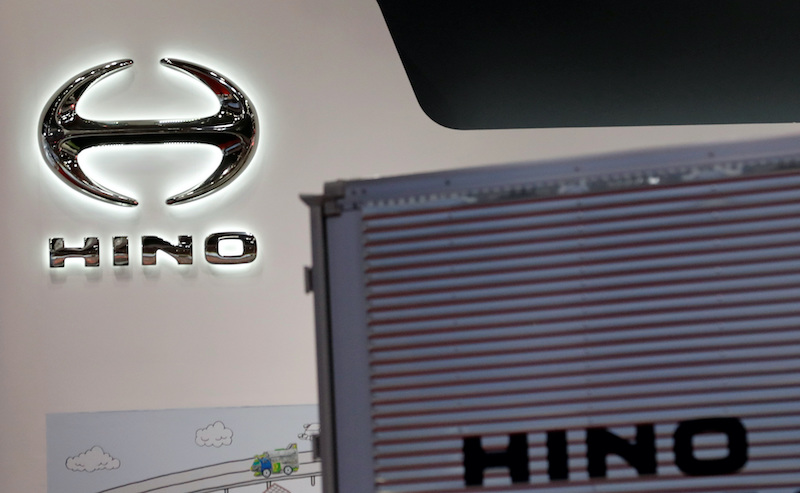The scandal at Japan’s Hino Motors over false engine data has widened, with Hino – Toyota’s truck and bus unit – announcing on Monday that it will suspend shipments of small trucks.
The new follows a Transport Ministry investigation that found some 76,000 of its small trucks sold since 2019 had not been subject to the required number of engine tests.
The small trucks aren’t being recalled because they don’t violate emissions standards, Hino said, but it has now almost completely halted sales in the domestic market. About 19,000 of Toyota’s Dyna and Toyoace trucks use the Hino engine and were also impacted, Toyota said.
This development has been a headache for its parent Toyota Motor Corp, which is facing a difficult year already because of multiple production halts.
Monday’s revelation was the latest sign of the scandal worsening for Hino since it first announced the data falsification affecting some of its bigger trucks in March.
Since then, it has said that it falsified data on some engines going back as far as 2003, at least a decade earlier than originally indicated. All told, some 640,000 vehicles have been impacted, more than five times the number it initially disclosed.
ALSO SEE: Toyota Scandal: Hino Falsified Emissions Data Since 2003
Toyota’s Responsibility
The issue has also thrown a spotlight on Toyota, Hino’s 50.1% owner, with some analysts questioning whether the parent should have done more to oversee standards at the smaller company.
“Toyota’s responsibility is serious,” said Seiji Sugiura, senior analyst at Tokai Tokyo Research Institute, adding that Toyota had responsibility for the corporate culture at Hino.
Hino became Toyota’s subsidiary at 2001 and nearly all presidents since then have been those who previously worked for Toyota.
Although Toyota has done necessary tasks as a parent company in terms of approving important matters and giving advice on governance, it could not directly intervene in Hino’s management, Toyota’s chief communications officer Jun Nagata said.
“I do not believe that we were able to intervene,” Nagata said, adding it would be up to Hino to restructure the company and protect its brand.
Shares of Hino slumped 5.9% during mid-afternoon trade on Tuesday.
The automaker said even though the engine for the small trucks was supposed to be tested at least two times at each measurement point, it was only tested once at each site.
A company-commissioned panel said in a report this month that Hino had falsified emissions data on some engines going back to at least 2003, or more than a decade earlier than previously indicated.
Hino blamed an inward-looking corporate culture and a management failure to engage sufficiently with workers that led to an environment that put greater priority on achieving schedules and numerical targets than following processes.
- Reuters with additional editing by Jim Pollard
ALSO SEE:
Japan’s Hino Motors Admits to Data Fraud – The Mainichi
Maruti Suzuki Urges India to Back Hybrid Cars as Well as EVs
Toyota Defends Electric Vehicle Strategy Ahead of AGM
Toyota, Subaru Shares Slump After EV Safety Recalls
Japan Elevates Hybrid Policy After Toyota Head’s Warning
























